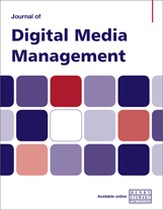The Glastonbury New Bands Competition Collection at the British Library: Technical challenges of migrating an optical disk collection
Abstract
The Glastonbury Festival kindly donated the 2004–2009 entries for its Emerging Talent Competition to the British Library for long-term preservation. The collection comprises more than 4,000 optical disks, primarily Compact Disk-Recordable (CD-R), and was migrated to a stable file-based format in 2019, as part of the Library’s Unlocking Our Sound Heritage project. Migration presented many challenges — while large parts of the workflow could be automated, and the audio data extracted verifiably bit-perfect and faster than real time, the collection is populated by poor-quality CD-R stock with many examples written using low-quality domestic burners, making the process of data extraction significantly more complex. The Library not only had to develop a multi-stage workflow with sufficient capacity to process the large quantity of disks in an efficient manner, but the workflow also had to be easily adjustable to accommodate the 1:1 transfer of severely damaged or degraded disks. This paper outlines the step-by-step technical workflow and the hardware/software employed to extract this unique content for long-term preservation.
The full article is available to subscribers to the journal.
Author's Biography
Tom Ruane is a preservation audio engineer and trainer at the British Library. In his current role on the Unlocking Our Sound Heritage project, he is responsible for setting up three regional audio preservation studios as part of a UK-wide network. This includes training and mentoring project staff in preservation principles, standards and workflows to ensure they have the knowledge and tools to provide sustainable access to audio collections in their regions.
